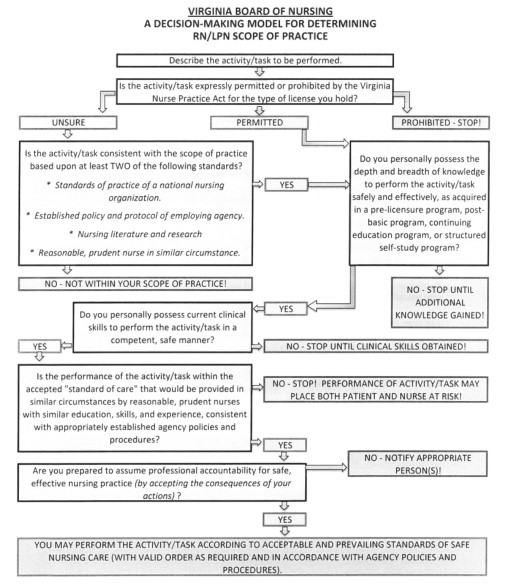This team oversees a wide array of professionals: from RNs and LPNs to the advanced practice squad like Nurse Anesthetists and Midwives, plus Nurse Aides, those advanced in the field, Clinical Nurse Specialists, Medication Aides, and yes, even Massage Therapists. And that’s not all—they’re the go-to for Nurse Practitioners looking to get their prescription pads ready. They also give the nod to Virginia’s nursing and related educational programs, making sure they’re up to snuff.
Now, let’s talk about the latest addition to their roster: the Licensed Certified Midwife (LCM). This new title hit the scene on February 1, 2024, under the watchful eye of both the Nursing and Medicine Boards, thanks to a shiny new section in the Virginia Code. LCMs are the cream of the crop, holding graduate degrees in midwifery and boasting certifications from the American Midwifery Certification Board. With the authority to prescribe a range of medications, they collaborate closely with physicians to provide top-notch care. And as of February 20, 2024, the Board started rolling out the welcome mat for applications.
As of early March 2024, Virginia boasts a whopping 234,291 licensed professionals under its wing.
| Registered Nurses | 121,267 |
| Including Advanced Practice Registered Nurses (APRN) | 20,236 |
| Autonomous Practice | 3,284 |
| Clinical Nurse Specialist | 375 |
| Certified Nurse Midwife | 479 |
| Certified Registered Nurse Anesthetist | 2,553 |
| Others | 13,545 |
| Licensed Practical Nurses | 26,999 |
| Registered Medication Aides | 7,121 |
| Certified Nurse Aides | 50,437 |
| Advanced Certified Nurse Aides | 50 |
Virginia, like many of its neighbors, is part of the Nurse Licensure Compact. This means nurses licensed in Virginia can extend their care digitally across member states. It’s a neat setup: hold one active license in your home state, and you’re good to go in any compact state, with the option to be licensed in other, non-compact territories if needed.
Board of Nursing Virginia Contacts
| Virginia Board Of Nursing Email | [email protected] |
| Virginia Board Of Nursing Phone Number | (804) 367-4515 |
| Virginia Board Of Nursing Address | 9960 Mayland Dr # 300, Richmond, VA 23233 |
| Virginia Board Of Nursing Portal | https://www.dhp.virginia.gov/Boards/Nursing/ |
Virginia State Board of Nursing Laws, Rules & Regulations
The Virginia Board of Nursing provides provisional licensure to aspiring registered nurses. This unique license is your ticket to get valuable clinical experience, but there’s a catch: you have to practice under the guidance of an experienced registered nurse, according to board guidelines.
For those drawn to volunteer work, Virginia offers a unique option. ense to offer care in underprivileged communities, as per § 54.1-3011.01 of the Code of Virginia. If you’d want to volunteer but aren’t registered in Virginia, here’s the information you should know:
- Submit a Complete Application: Make sure your application is completely filled out and filed at least five working days before your scheduled volunteer start date. Incomplete applications will not be processed.
- Proof of Licensure: Submit proof of your current, unencumbered license from any part of the United States.
- Details about your volunteer work: Include information on the charitable organization with which you will be working, as well as the dates and locations of your service.
- Registration Fee: Registration costs $10.
- Nonprofit Compliance: Provide certification from the nonprofit organization that it complies with Virginia’s health care regulations.
The Board’s Guidance Document clarifies which actions are within the scope for RNs and LPNs. However, if an action isn’t mentioned, it doesn’t automatically fall within or outside your scope of practice. The absence of an opinion from the Board simply means they haven’t addressed it in this guide. Always double-check if you’re unsure about whether an action aligns with your professional scope.
Virginia Nursing Board Scope of Practice
To help nurses negotiate the intricacies of their obligations, the Virginia Board of Nursing provides a decision-making model that prioritizes safe, competent practice. This approach encourages nurses to use their knowledge, abilities, and judgment within the legal scope of practice, resulting in a culture of accountability and excellent care.
Nurses are encouraged to get familiar with Virginia’s nursing legislation and board rules so that they may make educated judgments regarding their practice scope. This strategy not only assures compliance, but it also aligns with the board’s goal to safeguard public health and safety.

Except for the decision-making model, it’s important to dive into the heart of what nurses in Virginia can and can’t tackle.
Registered Nurses (RNs): Scope of Practice
PICC Lines
RNs may insert and remove PICC lines following a directive from a licensed medical authority. This responsibility comes with a detailed checklist:
- A solid foundation in intravenous therapy.
- Comprehensive training, both theoretical and hands-on, in managing PICC lines.
- Ongoing proof of proficiency and adaptability in technique and tech usage.
- Existence of employer guidelines on PICC line procedures.
- Mandatory imaging to confirm catheter placement before utilization.
- Procedures should occur where immediate complication management resources are accessible.
Cervical Ripening Agents
RNs are authorized to use specific agents, like Prostaglandin E-2 gel, for cervical ripening under professional direction.
Epidural Anesthesia
Epidural anesthesia administration is limited to obstetric and perioperative settings, contingent upon the availability of emergency management resources and the RN’s demonstrated competence.
Medication Administration
RNs can administer medications as prescribed, ensuring strict adherence to authorized medical orders.
OSHA Respiratory Standards Compliance
RNs are pivotal in conducting health assessments per OSHA’s respiratory standards, ensuring the confidentiality and comprehensive review of health data related to respirator use.
Fetal Monitoring
The implantation of internal fetal monitoring following membrane rupture is permissible, subject to recorded training, guideline adherence, and official consent from administration and medical personnel within the institution.
Virginia Registered Nurses (RNs): Scope of Practice Limitations
Using a scalpel for corns and warts is explicitly outside the RN’s practice scope, designated as medical or podiatry practice.
Licensed Practical Nurses (LPNs): Scope of Practice Clarifications
The scope of practice for LPNs is largely matched with that of RNs, with the primary difference being certain constraints and processes that LPNs are not permitted to do.
- Certain treatments, such as scalpel-cutting corns and warts, are not approved for LPNs to conduct. These responsibilities are considered medical or podiatric practice and are beyond the scope of the LPN’s duties.
- Administering bolus epidural anesthesia is strictly outside the LPN’s scope, regardless of the setting. This restriction underscores the importance of adhering to defined practice boundaries to ensure patient safety and professional integrity.
These limitations ensure that both RNs and LPNs work within their competence levels and education, maintaining patient safety and care quality.
VA Nursing Board Licensure Eligibility
Embarking on a career in nursing within Virginia requires fulfilling several key criteria:
- A valid copy of a high school degree or comparable certification is required.
- Applicants must have successfully finished a board-approved nursing education program.
- An important stage is to pass a board-specified written test that demonstrates nursing knowledge mastery.
- Applicants shouldn’t have participated in any activity that would cause disciplinary action, guaranteeing compliance with professional norms.
Practical Nurse (LPN) Licensure Requirements
To embark on a career as a Licensed Practical Nurse (LPN) in Virginia, candidates need to demonstrate:
- A minimum of two years of high school education or an equivalent foundation.
- Completion of a board-approved practical nursing program is crucial.
- Passing a board-mandated written test validates the applicant’s nursing competence.
- A clean slate with no disciplinary actions under their belt is necessary for licensure.
Military service often equips individuals with unique skills and experiences. Recognizing this, the Board may consider the military’s didactic and clinical training as meeting the educational criteria for LPN licensure.
Advanced Practice Registered Nurses (APRNs): Virginia Licensure Criteria
For APRNs aiming to secure licensure, the process includes additional specific requirements:
- Applicants must hold an active registered nurse license in Virginia or possess a current multistate licensure privilege.
- Evidence of a graduate degree in nursing or in a designated APRN specialty from an approved program is necessary.
- A key requirement is professional certification corresponding to the applicant’s specialty, issued by a recognized agency.
- Prospective APRNs are required to complete and submit an official application.
- Payment of the prescribed application fee is mandatory to process the licensure application.
Virginia Nursing Provisional Licensure
Provisional licensure serves as a temporary measure for applicants who meet all except the professional certification criterion, offering a grace period to achieve full licensure status.

VA State Board of Nursing Examination Requirements
The Virginia Board of Nursing administers the National Council Exam (NCLEX) for both registered nurses (RN) and practice nurse (PN) licenses. This demanding test serves as the foundation for determining applicants’ readiness to enter the field of nursing.
Candidates are considered qualified for the NCLEX after submitting a full application, including all needed fees and a verified transcript or certification of completion from a program in nursing. A preliminary review by the board confirming the absence of any licensure denial grounds as per Virginia’s legal statutes.
To set the stage for taking the licensing exam, applicants must:
- Submit all required applications, documents, and costs. This involves completing a criminal record background check, as required by Virginia law.
- Ensure that the board obtains a verified transcript from the nursing school that includes either the date of graduation or certification that all program criteria have been met.
- If an applicant fails to take the test within 12 months of qualification determination, or if eligibility is not proved within a year of the initial application, a reapplication is required.
Candidates expecting NCLEX results are allowed to practice in Virginia for a maximum of ninety days after graduation, provided they have sought for licensure and gotten board approval. Throughout this time, they have to identify as “R.N. Applicant” or “L.P.N. Applicant.”
The use of such designations is strictly restricted to the approved 90-day period or until the results of the test are released, whichever comes first. Applicants who fail to pass the exam are unable to practice nursing.
Nursing Board of Virginia Application Process
The Virginia Board of Nursing’s Application Wizard is a great resource that walks you through the precise licensure criteria when applying for a registered nurse license. Candidates must have completed at least 500 client care hours. To monitor the progress of your application, the Virginia Board of Nursing Login portal offers real-time updates.
Please note, once your application, background check, and payment are submitted, you have a one-year window before these elements expire. Should it remain incomplete after this period, it will be voided, necessitating a reapplication and another payment of the application fee.
For residents of Virginia who fulfill the Uniform Licensure Requirements (ULRs), a license with multi-state privileges will be issued. This allows for practice not only within Virginia but also across other compact states.
Virginia’s Board processes applications within approximately 30 business days, or about six weeks, assuming all necessary documentation is submitted promptly.
The application process for licensure by examination is exclusively online. Begin this process by visiting the official website, where a non-refundable fee of $190 is required alongside your application. To register, select the “Register a Person” link on the Initial Applications page. If adjustments to your application are necessary, you can easily make edits by logging back in with your User ID and Password.
Navigating the prerequisites for your nursing licensure in Virginia, particularly concerning transcripts and criminal record checks, is a pivotal step. Here’s a breakdown to ensure you’re fully prepared.
Transcripts for Virginia Nursing Graduates
If you’re a graduate from a Virginia nursing program, your program might offer an Attestation letter, which confirms your completion of the nursing program. This letter can serve as a substitute for your official transcript when submitted to the Virginia Board of Nursing. If not, you’ll need to supply a traditional transcript.
For Out-of-State Nursing Graduates
Nursing graduates from outside Virginia are required to submit a final, official transcript. This document must detail your clinical hours for each course, offering a clear picture of your hands-on experience.
Transcripts, whether they’re the traditional kind or Attestation letters, should be mailed to:
Virginia Board of Nursing
9960 Maryland Drive, Suite 300
Perimeter Center
Henrico, VA 23233
Phone: (804) 367-4515
Alternatively, you have the option to email your documents to [email protected]. Ensure your email’s subject line clearly states your name, followed by ‘Official Transcript’ or ‘Attestation Letter,’ as appropriate.
Criminal Record Check
For licensure in Virginia, a comprehensive fingerprint-based Criminal Background Check is mandatory. This step is coordinated through Fieldprint VA, and you’re required to submit your Board of Nursing application before setting up your fingerprinting appointment.
After submitting your online application, you’ll receive a confirmation receipt. This receipt includes a VBON Fieldprint Code, which is essential for registering for your fingerprinting session.
Nursing Board of Virginia Licensure by Endorsement
For nursing professionals aiming to secure licensure in Virginia through endorsement, the process is comprehensive and demands attention to detail. Nurses holding an active, good-standing license in another U.S. jurisdiction meet Virginia’s licensure by endorsement criteria, provided they align with Virginia’s licensure requirements.
Graduates from nursing programs with fewer clinical hours than Virginia’s mandate can still qualify by demonstrating at least 960 hours of clinical practice in another U.S. jurisdiction.
Graduates from international nursing programs must undergo a CGFNS credentials review and, if required, an English proficiency examination, unless previously verified by another U.S. state.
Canadian nurses benefit from streamlined endorsement if they have passed the Canadian Registered Nurses Examination and have an unrestricted Canadian license.
After submitting a criminal history background check, application, and fees, applicants receive a temporary 30-day practice authorization from the Virginia Board of Nursing, with the option to request an extension if necessary.
Nurse aides who are certified in other states or territories in the United States can get certification by endorsement if they have a clean criminal record and meet Virginia’s certification criteria.
APRNs seeking endorsement must demonstrate license, professional accreditation, and finishing the core curriculum related to their specialist area. Those aiming for autonomous practice must meet additional criteria.

Board of Nursing VA License Renewal
In order to keep an active nurse license, Virginia nurses must participate in one or more of the following types of professional development activities:
- Hold a current specialty certification from a national certifying organization.
- Complete a minimum of three post-licensure academic credit hours relevant to nursing from a regionally accredited institution.
- Participate in a board-approved nursing refresher course.
- Engage in a nursing-related, evidence-based practice project or research study.
- Author or co-author a publication within a renewal cycle.
- Teach or develop a nursing-related course offering at least three semester hours of college credit, a 15-week course, or obtain specialty certification.
- Instruct or develop up to 30 contact hours of nursing-related continuing education.
- Accumulate fifteen contact hours from approved workshops, seminars, conferences, or courses and 640 hours of active nursing practice.
- Alternatively, gather thirty contact hours from recognized workshops, seminars, conferences, or courses relevant to nursing practice.
Virginia APRNs licensed post-May 8, 2002, must maintain current professional certification in their specialty. Those licensed prior or with a retired certification have additional options:
Maintain professional certification, or complete 40 hours of continuing education in their specialty, recognized by a designated certifying agency or ACCME-approved Category I CME course.
Virginia Board of Nursing License Renewal educational activities must be offered by providers recognized by entities such as the American Nurses Credentialing Center, National Council of State Boards of Nursing, various nursing associations, accredited health care institutions, and others outlined by the Virginia Board of Nursing.
Nurses with dual licensure only need to meet one set of continued competency requirements. Nurse practitioners focus on specific requirements relevant to their practice and prescriptive authority. First-time renewals following initial licensure by examination or endorsement are exempt from the continued competency requirement.
Extensions for completing continuing competency requirements may be granted for up to one year under certain conditions. Exemptions may be available for nurses facing circumstances like temporary disability or mandatory military service.
The Board has established a career advancement certification for nurse aides, signifying enhanced competence. This certification requires successful completion of Board-approved training programs and is renewable biennially.
Note, that nurse aide certifications must also be renewed annually, with proof of ongoing employment or competence as mandated by the Board and in alignment with federal regulations.
State Board of Nursing VA Continuing Education (CEU)
Virginia nurses must keep original CEU completion documents for two years post-renewal. APRNs should keep their CEU evidence for four years. The board periodically conducts random audits, requiring selected nurses to provide their compliance documentation within 30 days.
Here’s how to document your compliance effectively:
- National Certification Proof should be a certificate with your name, the certifying body’s name, certification date, and expiry. It must cover the entire licensing period.
- Post-Licensure Education Documentation needs to show a transcript with course details, attendance dates, and credit hours.
- Refresher Course Completion is verified through a confirmation letter from the course provider, listing your name and the course details.
- Nursing Research Contributions require an abstract or summary detailing your involvement, the project’s scope, and key findings.
- Published Works should be evidenced with a copy of the publication showing your name and the date of publication.
- Teaching Credit Courses requires proof of the course, including the syllabus and your role as the instructor. Repeat usage for the same course requires significant syllabus changes.
- Continuing Education Teaching needs a program director’s attestation, including the course dates and contact hours awarded.
- Continuing Learning Activities must document the educational activity’s title, provider, contact hours, and completion date.
- Active Practice Hours should be confirmed through employer documentation, tax records for self-employed nurses, or validation from recipient agencies for volunteer work.
State Board of Nursing Virginia Complaints & Disciplinary Actions
The Virginia Board of Nursing serves as a diligent supervisor, ensuring that nurses in the state meet the highest standards of professionalism and ethics. The Board wields the authority to take decisive action against licenses—be it denial, revocation, suspension, or imposing disciplinary measures—if a nurse is found breaching the Code of Virginia’s stipulated provisions. These are the critical areas of concern:
- Fraudulent Practices: This includes but isn’t limited to submitting fake credentials, misrepresenting facts during license application, and cheating during exams.
- Unprofessional Conduct: Acts exceeding the professional scope, inadequate training, misuse of medical supplies, and delegating tasks to unqualified individuals all fall under this category. Additionally, manipulating patient or employment records, patient abuse or neglect, and engaging in unethical relationships or behaviors are severe violations.
- Boundary Violations: Exploiting professional positions for personal gain or engaging in inappropriate relationships with patients or clients.
- Privacy Breaches: Illegal sharing of confidential patient information, misleading the Board or its staff during investigations, and failing to report abuse or neglect as mandated by Virginia laws.
- Prohibited Practices: Engaging in practices like conversion therapy with minors and any other actions contravening the nursing chapter’s regulations.
The Board investigates every claim thoroughly, ensuring that nurses in Virginia continue to provide safe, competent, and ethical care.

Virginia Board of Nursing License Lookup
For real-time Virginia Board of Nursing Lookup, Nursys is your go-to resource. It’s the sole national database that bridges you directly to the most current licensure and disciplinary information, fed straight from state nursing boards.
The nursing board’s database hosts records of nurses with current, unexpired licenses, as well as those whose licenses have expired post-January 1, 2000. For Virginia State Board of Nursing License Lookup focusing exclusively on active, current licensees, simply tweak your search criteria in the Status Box to “Current Licensees.”
Verifying any Virginia Board of Nursing Licenses, Certificates, or Registrations is as simple as feasible. Whether you’re validating the credentials of an RN, LPN, or another nursing professional registered by the Virginia Board, the system puts current, precise data at your fingertips.
VA Board of Nursing Useful Online Resources
- Guidance Documents
- Drug Laws for Practitioners
- Regulations Governing the Practice of Nursing
- Laws and Regulations for Certified Nurse Aides
- Chapter 30 of Title 54.1 of the Code of Virginia Nursing
- Excerpts Relating to Advanced Practice Registered Nurses
- Decision-Making Model for Determining RN/LPN Scope of Practice
- Scope of Practice for Registered Nurses and Licensed Practical Nurses
- Regulations Governing The Licensure of Advanced Practice Registered Nurses
FAQs about Virginia Board of Nursing
-
Are nurse aides listed on the Virginia board of nursing?
Yes, nursing aides are overseen by the Virginia Board of Nursing. They play an important role in healthcare, helping nursing along with other medical professionals provide patient care. The Board supervises their education, certification, and practice. -
How to apply to the Virginia board of nursing?
Submit your application online at the Virginia Department of Health Professions webpage. Pay the necessary cost during the application procedure. Provide a background check with fingerprints. Online applicants will receive an application confirmation receipt containing a Fieldprint Code required for fingerprinting registration. -
How to apply for a Virginia board of nursing endorsement application?
If you are working as a registered nurse in another state and wish to practice in Virginia, you have to pass a fingerprint-based criminal record check and then seek license verification from the state in which you took the NCLEX. Submit your online application with a credentials evaluation report. -
Where can I get the current rules and regulations for nursing and advanced practice nursing in Virginia?
The applicable laws and regulations governing nursing practice include: Chapter 30 of Title 54.1 of the Code of Virginia, excerpts from the Medical Practice Act, drug laws for professionals, and particular regulations. -
Where can I get written information on Medicare reimbursement rules?
The Centers for Medicare & Medicaid Services (CMS) has issued the final rule for the CY 2024 Physician Fee Schedule (PFS), which includes policy modifications for Medicare payments under the PFS as well as other Medicare Part B payment policy problems. The Virginia Department of Aging and Rehabilitative Services (VDA) website provides state-specific information on Medicare and Medicaid. -
What is the supervisory ratio of doctors to nurse practitioners in Virginia?
The supervisory ratio for physicians and nurse practitioners in Virginia varies depending on the healthcare context and organizational norms. According to § 54.1-2957.01 of the Code of Virginia, a physician cannot serve as a patient care team physician for a maximum of six advanced practice registered nurses with prescription power at the same time. -
How many contact hours are needed to recertify for licensure as a nurse practitioner in Virginia?
To recertify your Virginia nurse practitioner license, you have to finish 15 contact hours of workshops, seminars, conferences, or nursing-related courses. Additionally, you must have 640 hours of active practice as a nurse. Alternatively, you can meet the requirement by attending 30 hours of related workshops, seminars, conferences, or courses.



